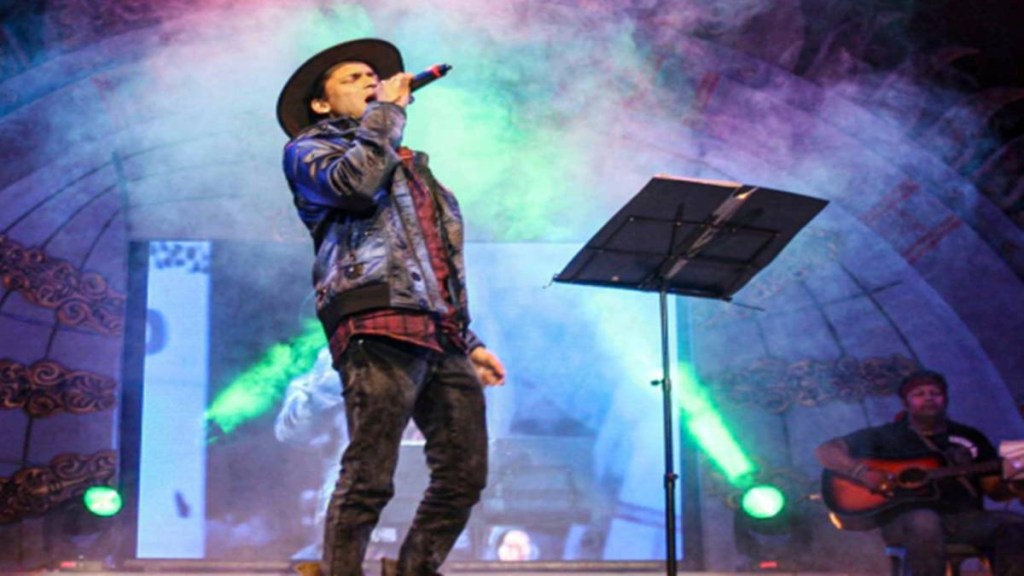The 1980s in Assam were years of fire and fury. A student-led uprising gripped the state, steeped in an existential dread of foreigners and identity loss. The unrest gave birth to a generation scarred and dislocated. The turbulence spilled into the 1990s, when a separatist movement and military repression turned everyday life into fear and silence. Songs of Bhupen Hazarika had long guided people through turmoil, but the era cried out for a new voice—one that could heal, rebel, and dream at once.
It was into this void that Zubeen Garg stepped in 1992, storming into Assamese homes with his debut album ‘Anamika’, days before his 20th birthday. His soaring vocals carried both hope and heartbreak, offering a generation a soundtrack to live by.
Assam mourns Garg with grief
His accidental death in Singapore on September 19 plunged Assam into unprecedented mourning with an outpouring of paralysing grief, unvarnished love, and even restive anger. In passing, Garg has joined modern Assam’s pantheon of literary and musical greats, alongside Lakshminath Bezbarua, Jyoti Prasad Agarwala, Bishnu Rabha and Hazarika.
Over three decades, Garg recorded more than 38,000 songs in 40 languages—a staggering number, yet still a fraction of his legacy. Garg was not merely a singer; he was an architect of a new sound. He wove high-octave Western riffs with Assamese folk soul, pairing raw power with colloquial ease. His flamboyant, long-haired rockstar persona gave a restless generation an idol who looked like them, sang to them, and sometimes even sang for them.
For his fans, there was an unspoken pact: Each year would bring a new album, often chartbusting. As young listeners began to deify him, and technology evolved from audio cassettes to CDs, he inspired a mushrooming of local musicians. Nearly every singer that took stage at the Bohagi Bidai (farewell to Bohag, the month of Rongali Bihu that marks the Assamese New Year, in April) concerts began to sound like a version of Garg.
Over time, he proved his versatility across genres, including folk music and devotional such as Borgeet, Jikir, and his ballads incorporated more social commentary.
Like many promising singers, he too had moved to Mumbai in the mid-90s, released a Hindi album, and sang in several movies. But, he said recently, “Mumbai has more attitude, and to get rid of that, I asked them to come here (in Assam). I will die here like a king.”
His decision to not be swayed by Mumbai but live among the people of Assam added to his myth.
The death of his sister, Jonkie Borthakur, a singer and actor of immense promise, in a car accident in 2002 was a tragedy that further shaped his life and music. He expressed his scars in the album titled Shishu that year. “Xanti diya mukti diya/xunor Axom rosibole” (Give peace and freedom to build a golden Assam), he cried.
With his humanitarian acts—funding strangers, adopting children, opposing animal sacrifice at temples, leading protests against deforestation—he became a messiah as much as a musician.
Garg gave Assamese cinema a commercial break
Of late, he reinvented himself as an actor-producer, giving Assamese cinema a commercial lifeline with Mission China (2017). It wasn’t great cinema, but in the words of actor-director Kenny Basumatary “it was like Roger Bannister (British Olympian) breaking the 4-minute mile barrier—once he did it, others followed suit” (grossing crores of rupees at the box office).
Yet, it was Garg’s flaws that made him irreplaceable. Assam is often wary of non-conformists, but Garg’s unpredictability was part of his charm. He could show up drunk, scold organisers, defy terror threats over singing in Hindi, or make jarring remarks—and be forgiven. Unlike most artistes who toe the line, he could call himself a “social leftist”, critique politicians, oppose the Citizenship (Amendment) Act, or anger Brahmins with controversial statements. His contradictions made him human, and his humanity made him beloved.
In his death, the grief has been unanimous, cutting across ethnic, religious and linguistic divides. Communities who often clashed in Assam found a common ground in mourning him. Because in life, Garg was not just an Assamese singer—he was a voice of the North-East, a bridge across fault lines of identity, language, and politics.
Now, as the rebel’s voice falls silent, Assam sings his songs louder than ever. The storm he once carried in his voice has settled into the heart of a people who will forever claim him as their own.

